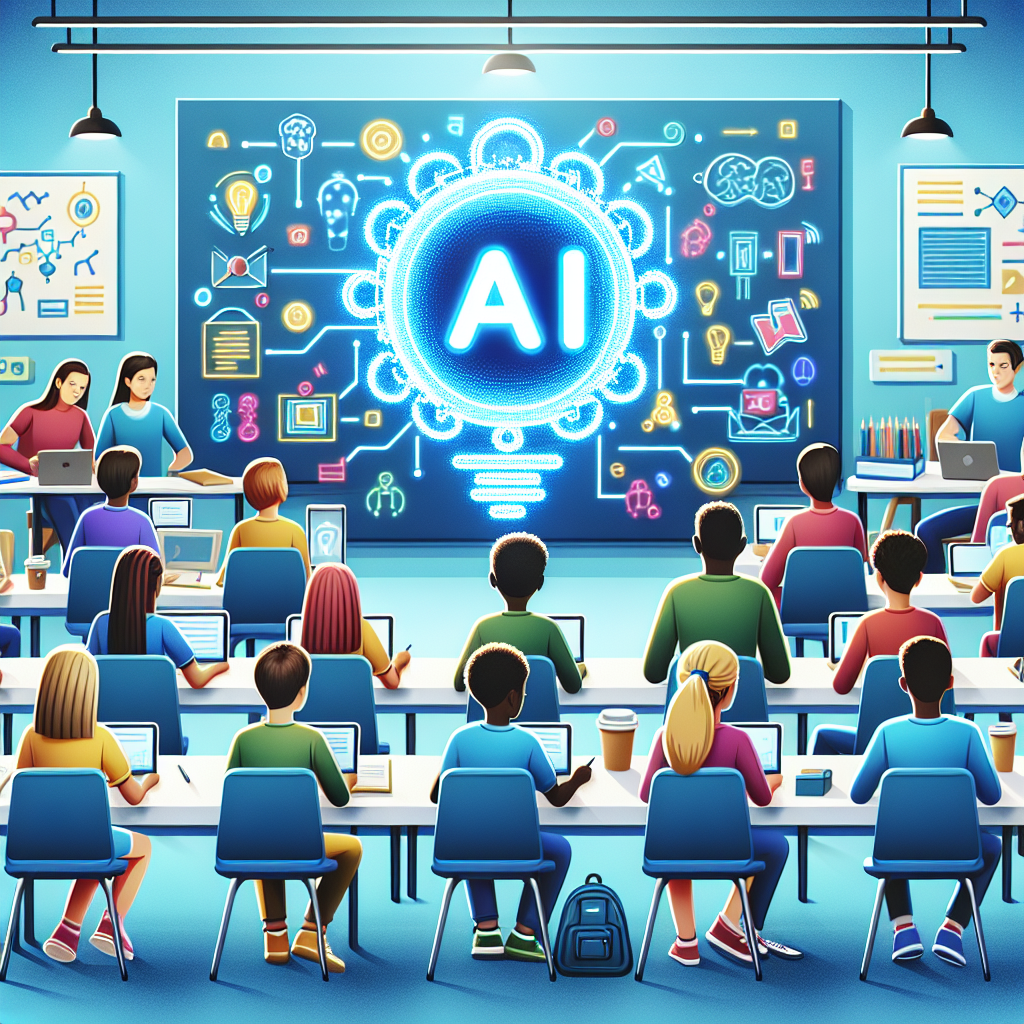In recent years, artificial intelligence (AI) has been increasingly integrated into various aspects of education, including student-centered learning environments. Student-centered learning environments focus on the individual needs and interests of students, allowing them to take more control of their learning and progress at their own pace. AI technologies have the potential to enhance these environments by providing personalized learning experiences, supporting teachers in delivering more effective instruction, and helping students achieve better outcomes.
One of the key roles of AI in student-centered learning environments is to provide personalized learning experiences. AI technologies can analyze data on student performance, preferences, and learning styles to tailor instruction to meet the unique needs of each student. For example, AI-powered adaptive learning platforms can provide students with personalized lesson plans, activities, and assessments based on their individual strengths and weaknesses. This can help students stay engaged and motivated, as they are more likely to succeed when the learning material is relevant and appropriately challenging for them.
AI can also support teachers in delivering more effective instruction in student-centered learning environments. By analyzing data on student performance and providing insights into student progress, AI technologies can help teachers identify areas where students may need additional support or intervention. This can enable teachers to intervene early and provide targeted assistance to students who are struggling, ultimately helping them achieve better outcomes. Additionally, AI can assist teachers in managing the diverse needs of students in the classroom, allowing them to differentiate instruction and provide individualized support to each student.
Furthermore, AI can help students achieve better outcomes by providing them with access to a wide range of educational resources and tools. For example, AI-powered tutoring systems can offer students additional practice and support outside of the classroom, helping them reinforce their learning and master difficult concepts. AI can also facilitate collaboration and communication among students, enabling them to work together on projects and share ideas in a more efficient and effective manner.
Despite the numerous benefits of AI in student-centered learning environments, there are also challenges and concerns that need to be addressed. One of the main concerns is the potential for bias in AI algorithms, which can perpetuate inequalities and disadvantage certain groups of students. For example, if AI systems are trained on data that reflects existing biases in society, they may inadvertently reinforce these biases in their recommendations and decisions. To mitigate this risk, it is important to ensure that AI technologies are designed and implemented in a way that is fair, transparent, and accountable.
Another challenge is the need for teachers and students to develop the necessary skills and competencies to effectively use AI in student-centered learning environments. Teachers need training and support to integrate AI technologies into their teaching practices and to interpret and act on the insights provided by these technologies. Students also need guidance on how to use AI tools and resources to support their learning and development. By investing in professional development and digital literacy programs, educators can ensure that both teachers and students are prepared to leverage the potential of AI in student-centered learning environments.
In conclusion, AI has the potential to play a significant role in student-centered learning environments by providing personalized learning experiences, supporting teachers in delivering effective instruction, and helping students achieve better outcomes. However, it is important to address challenges and concerns related to bias, skills development, and ethical considerations to ensure that AI is used in a responsible and equitable manner. By harnessing the power of AI in education, we can create more engaging, inclusive, and effective learning environments that empower students to reach their full potential.
FAQs:
Q: How can AI support personalized learning in student-centered environments?
A: AI technologies can analyze data on student performance, preferences, and learning styles to tailor instruction to meet the unique needs of each student. This can include providing personalized lesson plans, activities, and assessments based on individual strengths and weaknesses.
Q: What are the potential benefits of using AI in student-centered learning environments?
A: Some potential benefits of using AI in student-centered learning environments include improved student engagement and motivation, more effective instruction and support for teachers, and better outcomes for students.
Q: What are some challenges and concerns associated with using AI in student-centered learning environments?
A: Some challenges and concerns include the potential for bias in AI algorithms, the need for teachers and students to develop the necessary skills and competencies to use AI effectively, and ethical considerations related to the use of AI in education.
Q: How can educators ensure that AI is used in a responsible and equitable manner in student-centered learning environments?
A: Educators can ensure that AI is used responsibly and equitably by addressing bias in AI algorithms, providing training and support for teachers and students, and promoting transparency and accountability in the use of AI technologies.

